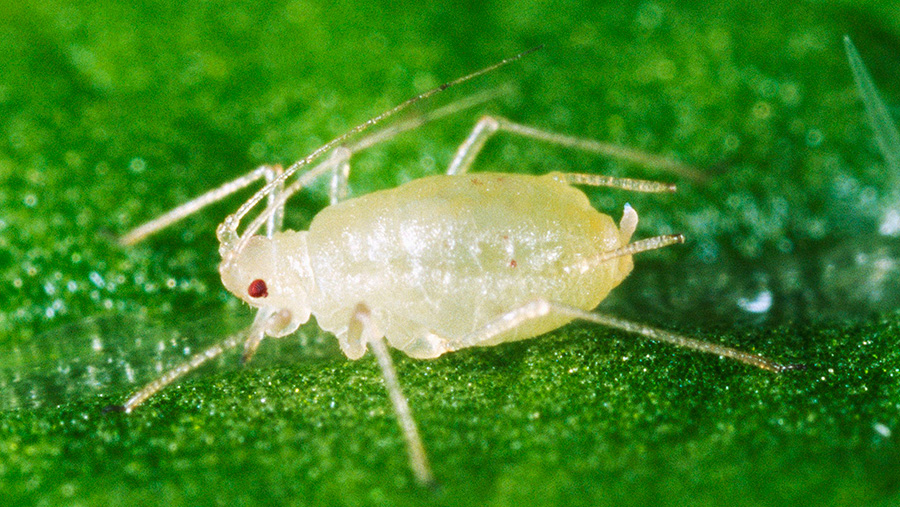Peach-potato aphid resistance to neonicotinoids ‘one to watch’
 © Design Pics Inc/REX/Shutterstock
© Design Pics Inc/REX/Shutterstock Growers have been warned not to let their guard drop against the aphid threat to crops, as temperatures start to rise across the UK and the risk increases.
The latest screenings of problematic peach-potato aphid populations show widespread resistance to many insecticides and although resistance to neonicotinoid products is not yet a reality, experts says it is “a key one to watch”.
Peach-potato aphid resistance to carbamate sprays such as pirimicarb is described as “strong” and pyrethroid resistance is “prevalent” in UK populations.
See also: Video: How to properly set up a crop sprayer
Monitoring work also confirmed that there was “no significant resistance” to neonicotinoids that could compromise control levels, but it was noted that some aphid samples may have been more “genetically diverse”.
Peach-potato aphids carry a range of yield damaging viruses that mostly affect oilseed rape and root crops. The pest infects rapeseed plants with turnip yellows virus (TuYV) which can rob growers of up to 40% of their yields.
Aphid reproduction and migration between plants occurs at temperatures of at least 3C, while flight is possible at 12C and above.
Caroline Nicholls of AHDB Cereals & Oilseeds said screening work was vital and highlighted the possibility of neonicotinoid resistance, as something that needed close observation.
“This work is essential if we are to detect new resistance mechanisms coming into the UK from abroad, with neonicotinoid resistance being a key one to watch.
“The work has found evidence to suggest that some peach-potato aphids from protected crop samples may have come from more genetically diverse, sexual populations, on imported plant material.
“The relatively subtle changes in resistance observed recently do not mean we can take down our guard.”

